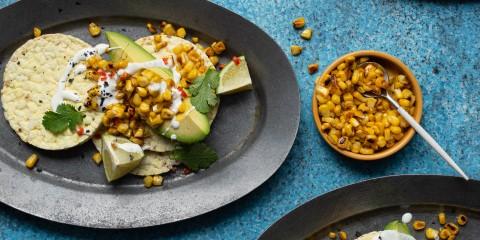How Your Gut Microbiome is Influenced by Your Sex

The saying that women are from Venus and men are from Mars stands true for their differences in many ways. One way you may not be aware of is how your gender impacts your gut microbiome. There are many factors which influence the microorganisms which live in your gut. Some of these factors include your age, as well as with your lifestyle choices such as exercise, stress, and diet. Your sex hormones and your gender also impact your gut microbiome.
The number of microbes in your gut differs depending on your gender. Women tend to have more microbes with a bacteria-to-human cell ratio of 1.3. Compared to men with a lower ratio of bacteria-to-human cell ratio of 2.2.
Your gut microbiome is defined in the Encyclopedia of Cell Biology as ‘the collection of microorganisms including bacteria, archaea, viruses, and fungi found within the gut and their overall genetic information.’ Everyone has a different diversity and number of different microorganisms. Your gut microbiome is as unique to you as your fingerprint. One factor which influences your unique gut microbiome is your gender.
Your gut microbiome has many roles. This includes metabolising or breaking down androgens and estrogen. Your gut microbiome also plays a role in excreting and circulating the sex hormones. Due to these important roles of creating and distributing sex hormones around your body, the name ‘microgenderome’ has been proposed.
Your gender has been proposed to be one reason why certain gastrointestinal diseases are more common in women than in men. Such as inflammatory bowel disease, colon cancer, and irritable bowel syndrome.
In a study which included human participants it was found that when men were given a high fat diet the microbes which increased differed to those when women were given the same high fat diet. The men had an increase in Lactobacillus, Alistipes, Clostridium, and Lachnospiraceae while the women did not show this increase in amounts of these types of microbes.
Even though there are differences between the genders there is strong enough evidence to support both men and women eat a diet which is primarily plant based. This is because the health promoting gut bacteria require fuel from plant sources. Aiming for 30 different plant foods a week is a recommended goal. This amount will provide your health promoting microbes with enough and the variety of different prebiotic fiber and polyphenol fuel sources needed to keep the health promoting microbes alive.
Plant foods to include in your week include whole grains like brown, black or red rice, whole grain bread, whole grain crackers like Corn Thins slices, whole grain couscous, vegetables, fruit, legumes and beans, nuts, seeds, and fruit.
Take home message: Your gender and sex hormones influences may components of you as a human being and this includes your gut microbiome.
References:
- Bolnick DI, Snowberg LK, Hirsch PE, Lauber CL, Org E, Parks B, Lusis AJ, Knight R, Caporaso JG, Svanbäck R. Individual diet has sex-dependent effects on vertebrate gut microbiota. Nat Commun. 2014 Jul 29;5:4500. doi: 10.1038/ncomms5500. PMID: 25072318; PMCID: PMC4279269.
- Sender R, Fuchs S, Milo R. Revised Estimates for the Number of Human and Bacteria Cells in the Body. PLoS Biol. 2016 Aug 19;14(8):e1002533. doi: 10.1371/journal.pbio.1002533. PMID: 27541692; PMCID: PMC4991899.
- Yoon K, Kim N. Roles of Sex Hormones and Gender in the Gut Microbiota. J Neurogastroenterol Motil. 2021 Jul 30;27(3):314-325. doi: 10.5056/jnm20208. PMID: 33762473; PMCID: PMC8266488.
- Encyclopedia of Cell Biology. Volume 2, 2016, Pages 799-808The Gut Microbiome. H.Neuman, O.Koren. https://doi.org/10.1016/B978-0-12-394447-4.20083-7
- Cândido FG, Valente FX, Grześkowiak ŁM, Moreira APB, Rocha DMUP, Alfenas RCG. Impact of dietary fat on gut microbiota and low-grade systemic inflammation: mechanisms and clinical implications on obesity. Int J Food Sci Nutr. 2018 Mar;69(2):125-143. doi: 10.1080/09637486.2017.1343286. Epub 2017 Jul 4. PMID: 28675945.